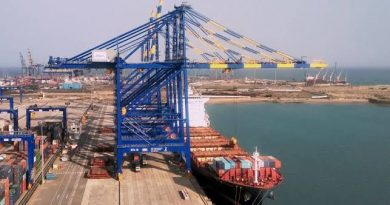Authorities Go Digital to Manage Fuel Supply Chain
ADDIS ABABA – Ethiopian authorities have introduced a centralized digital system to regulate the fuel supply chain in the country.
The ‘Digital Fuel Supply Chain Management System’ was developed and implemented by state-owned telecom company Ethio Telecom.
Ethio Telecom and its partners – the Ministry of Trade, Fuel and Energy Authority, and Ethiopian Fuel Supply Enterprise – officially launched the system on Friday.
Authorities embraced digital solutions after illicit actors in the supply chain disrupted the market and exposed the country’s fuel bought with its limited forex to contraband trade.
The price spike in the global market more than doubled Ethiopia’s annual fuel import bill to $4.2 billion this year from less than $2 Billion two years ago, per central bank data
‘real-time monitoring’
Regulators have been tracking the fuel supply from the port to final destinations through manual mechanisms – which opens the chance for fraudsters to exploit.
The newly introduced digital solution grants the capacity to manage the fuel supply chain using a centralized digital platform.
“The system would play a tremendous role in modernizing the traditional and paper-based operational process in the fuel supply chain,” its developer said.
The system enables real-time monitoring of fuel distribution activities, facilitating digital fuel supply orders, order acceptance or rejection, and real-time access to crucial information and data.
Authorities expect the digitals solutions would benefit all actors across the supply chain upto the gas stations and ensure fuel availability to users.
“Digital fuel coupon”
On the same day, Ethio Telecom also launched a digital payment system to replace the current manual fuel coupon transactions with digital payment solutions.
The system enables users and institutions to purchase digital coupons online from fuel companies at any time and then transfer them to users at their workplaces, allowing them to make payments easily via Telebirr.
It also empowers fuel stations to offer secure payment alternatives, leading to streamlined cash flow, reduced operating costs, and increased user volume and sales.
Currently, there are 1,439 gas stations across the country, serving approximately two million vehicles.








